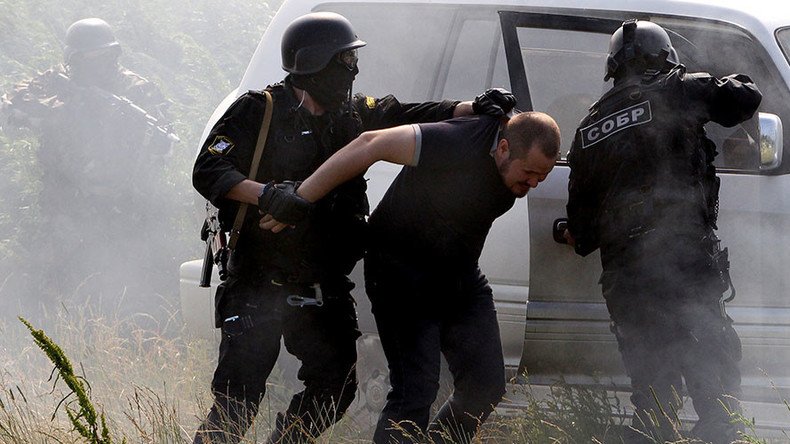Ruling party lawmaker proposes life sentences for terrorist recruiters

A Russian MP representing parliamentary majority party United Russia has prepared a bill that would mean a maximum punishment of life in prison for terrorist group recruiters, up from the current sentences of five to 15 years.
Russian special services should start countering terrorist recruiters or they will never succeed in defeating the threat they pose, State Duma deputy Adalbi Shkhagoshev said in comments with Izvestia daily.
“Now recruiters get sentences between five and 10 years, maybe 15 if they use their official posts to commit their crimes. If the court cannot fully prove the terrorist chain of connections, the sentence can be as low as two or three years behind bars. But who is more dangerous? A suicide bomber who carries out just one attack, or a recruiter who can prepare 10 suicide bombers?” the lawmaker told reporters.
READ MORE: Call to reinstate death penalty for terrorism by Russian leftist leader
“If the connection is proven, we can sentence the recruiter to nothing else but life in prison. A potential suicide attacker will not be scared by a life sentence, but recruiters are cunning people. They attract new members for money and they fear life sentences like they fear death. This will have a serious effect on them,” Shkhagoshev added.
He also told reporters that in his view recruiters are among the most dangerous members of terrorist organizations because only between five and 10 percent of extremists are true fanatics, whereas the rest turn to terrorism for money or because of promises made by recruiters.
The lawmaker said that he will soon submit to the parliament a bill introducing amendments to the Russian criminal code that would allow terrorist recruiters to be sentenced to life in prison. The measure would be applied if the person attracted by a particular recruiter successfully carried out an attack.
The head of the lower house Committee for Civil and Criminal Law, MP Pavel Krasheninnikov, has called the initiative correct and timely, and has promised to support the bill after it is drafted.
Life in prison is the harshest punishment a court can now order in Russia because the country introduced a moratorium on the death penalty in 1996 – as one of the conditions for entering the Council of Europe.
However, since the moratorium came into force, many Russian politicians and state officials have proposed reintroducing the death penalty for crimes such as terrorism, corruption, pedophilia and war crimes.
In particular, the head of the Chechen Republic, Ramzan Kadyrov, has repeatedly urged the authorities to introduce the death penalty for terrorism, arguing that keeping convicted extremists in prisons is too expensive, and that there was the danger that terrorists serving life sentences would recruit new supporters while in prison.
The nationalist-populist party LDPR has also urged a return of capital punishment, saying that it should be applied to corrupt officials who aid terrorists.
In a proposal made in late March, LDPR MP Nikolay Nosov said he would draft a bill that, if passed, will reinstate the death penalty for terrorists and foreign citizens convicted of drug trafficking. “I think we should use methods employed by the USSR and Israel – no negotiations and only death for terrorists,” the lawmaker said in press comments.
READ MORE: ‘Capital crime!’ Nationalist lawmaker seeks return of death penalty for terrorists
However, United Russia has so far refused to back such proposals, saying they are not the most effective measure against modern extremists, many of whom dream of becoming martyrs.











